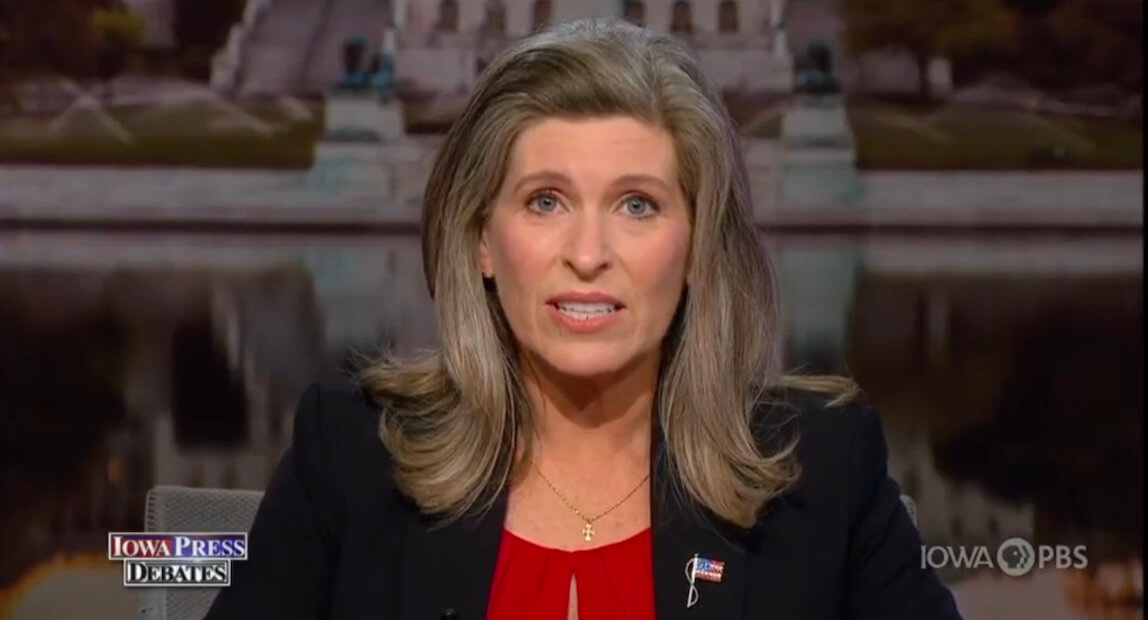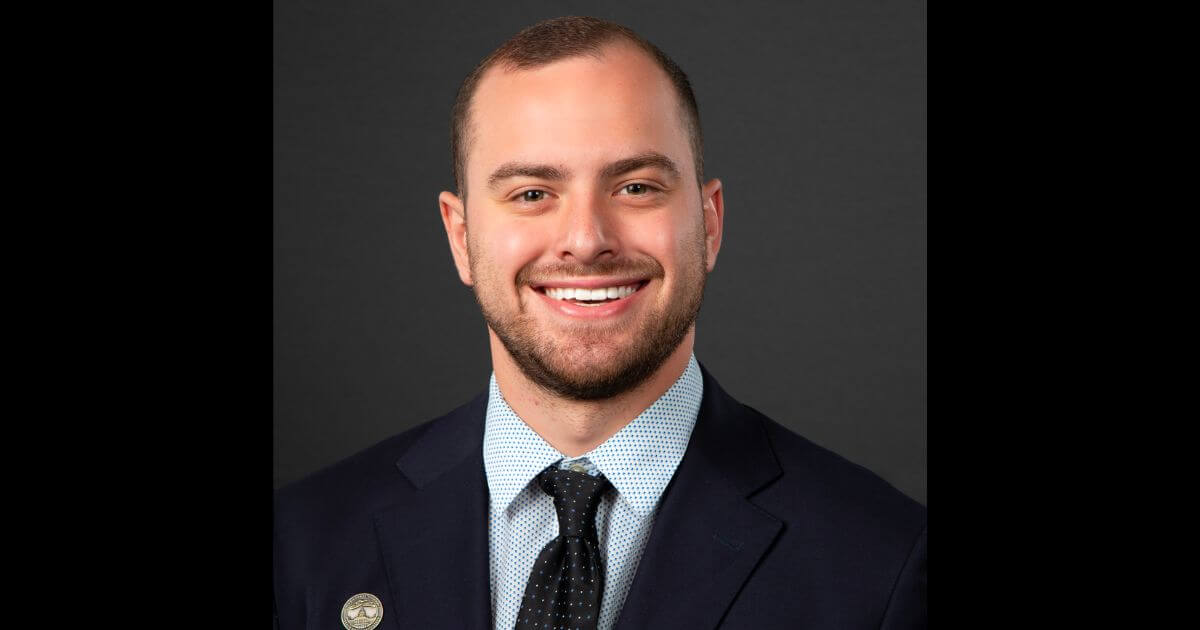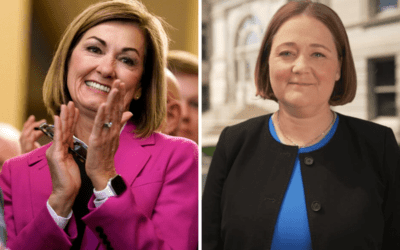
It took less than one minute on Monday night for Sen. Joni Ernst to apply a separate set of standards to President Trump and his Supreme Court nominee than she applied four years ago when President Barack Obama had the opportunity to fill a vacancy on the nation’s highest court.
One of the first questions of the “Iowa Press” debate between Ernst and Theresa Greenfield dealt with Senate Republicans’ decision to proceed with a Supreme Court confirmation process only weeks away from Election Day.
When Justice Antonin Scalia died in February 2016, with 10 months left in Obama’s final term, Ernst lined up behind Senate Majority Leader Mitch McConnell to say “the American people deserve to have a say in this important decision that will impact the course of our country for years to come.”
[inline-ad id=”3″]
In light of Justice Ruth Bader Ginsburg’s death this month, Ernst now has reversed course to push through Judge Amy Coney Barrett, whom Trump has nominated to fill Ginsburg’s seat. Unlike four years ago, Ernst now sits on the Judiciary Commitee tasked with overseeing Barrett’s confirmation hearings.
Here is the exchange between reporter Caroline Cummings and Ernst on the question of the confirmation process.
Cummings: “You stand prepared, Sen. Ernst, to vote on a Supreme Court nominee, yet four years ago, in the 2016 election, you have said that delaying a vote in an election year is ‘precedent,’ so what has changed on this Supreme Court nominee?”
[inline-ad id=”2″]
Ernst: “Caroline, I have been very consistent on this. In 2016, we followed the Vice President Joe Biden rule — that was important, that was important and that was what we had stood beside. The ‘Biden rule’ says that, or that precedent says that, when there are divided parties — you have a presidency of one party and the Senate majority of another party — you wait. Right now we do not have a divided government situation. I feel that I have been consistent. We are following the ‘Biden rule.'”
Fact-checkers have pored over the “Biden rule” defense since Republicans first leveraged it in 2016 as justification for blocking President Obama’s nominee from confirmation hearings. One of the key differences between the current situation and Biden’s 1992 speech on the Senate floor is that he was speaking hypothetically, there was no opening on the Supreme Court at the time of his remarks. There is no rule in the Senate that says a justice cannot be nominated or confirmed in an election year.
[inline-ad id=”1″]
Cummings then pointed out how Ernst, in 2018, said she would not support President Trump nominating a new justice prior to Election Day 2020.
“Until he goes through that election cycle, and when he is reelected, then he would be able to make the new appointment,” Ernst told the Des Moines Register Editorial Board when asked whether she would support holding open a Supreme Court seat if a vacancy occurred late in President Trump’s term. “I think it would be absolutely fair, of course it would be fair.”
“Come 2020, if there’s an opening, I’m sure you’ll remind me of that,” Ernst said during the 2018 interview.
Tonight, during the first debate between Ernst and Greenfield, she was resolute in her support of the new standard allowed for President Trump.
[inline-ad id=”4″]
“The president has made his nomination, and so as a member of the Judiciary Committee I will do my duty,” Ernst said on Monday night. “We will vet the nominee. We know who the nominee is now and we will move forward with that nominee. Bottom line, what I won’t allow to happen is the radical left to move forward and pack the court.”
Greenfield said she does not support expanding the number of justices on the Supreme Court and wants to keep the bench at nine members.
By Elizabeth Meyer
Posted 9/28/20
[inline-ad id=”2″]
Iowa Starting Line is an independently owned progressive news outlet devoted to providing unique, insightful coverage on Iowa news and politics. We need reader support to continue operating — please donate here. Follow us on Twitter and Facebook for more coverage.

Lanon Baccam wins 3rd District Dem primary, will face Zach Nunn
Baccam defeats Melissa Vine to challenge Republican incumbent Lanon Baccam defeated Melissa Vine in Tuesday’s Democratic primary for Iowa’s 3rd...

Hardin County man running for office as Trump-loving Democrat to local party’s dismay
Brad Rewoldt, who recently changed his party affiliation from Republican, says his support of Trump will probably 'piss off' Democrats There is a...

Scheetz: Tax cuts for all Iowans, not just the wealthy
State Rep. Sami Scheetz says all Iowans should benefit from tax cuts via a sales tax reduction As a state representative, my job is to serve the...

Kalbach: What Iowa Republicans focused on during legislative session
Our state legislative session finished up towards the end of April, and I’m glad it’s over! From further de-funding and privatizing our public...

Advocates file suit to stop Iowa’s ‘unconstitutional’ immigration law
Immigration advocates filed a federal lawsuit Thursday to stop Iowa’s new immigration law—SF 2340—from taking effect arguing that the legislation...

Iowa Republicans make outlawing gay marriage key 2024 campaign priority
Iowa Republicans have made outlawing gay marriage a key goal in their 2024 party platform. During the Iowa GOP’s 2024 state convention on Saturday,...




